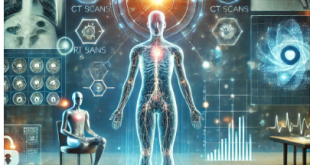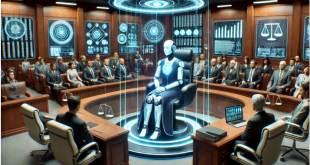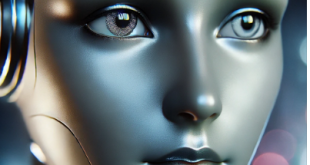Exploring the Intersection of Technology and Theoretical Physics
The concept of the multiverse—a hypothetical collection of multiple universes—has long intrigued philosophers, scientists, and science fiction enthusiasts. Traditionally the domain of theoretical physics and cosmology, the multiverse hypothesis has found a surprising ally in the field of artificial intelligence (AI). As AI systems grow in sophistication, their potential to contribute to multiverse theories explore its implications has become a topic of growing interest.
Understanding the Multiverse
The multiverse theory posits that our universe is not the only one. Instead, it exists as part of a vast and possibly infinite collection of universes, each with its own physics, constants, and properties. There are several interpretations of the multiverse concept:
- Quantum Multiverse: Derived from the many-worlds interpretation of quantum mechanics, which suggests that every quantum decision spawns a new, parallel universe.
- Cosmological Multiverse: An interpretation of inflationary cosmology is the “many worlds” view of that scenario; that is, various “pockets” of space have different physical constants.
- Mathematical Multiverse: Max Tegmark‘s hypothesis is that all mathematically possible structures exist as physical realities.
These interpretations are challenging to define and most remain speculation due to the absence of direct empirical evidence. AI, however, fits right into the picture.
AI’s Role in Multiverse Exploration
Data analysis and simulation aside, AI also has the capability to generate numerous hypotheses, which marks it as a treasure for theoretical physics and cosmology. Here‘s how AI may connect with the study of the multiverse:
1. Simulating Multiversal Scenarios
Simulations can model hypothetical universes with alternative physical laws or constants by means of AI. Analyzing the stability and properties of these simulated universes helps researchers gain insight into conditions that would make life feasible or even define the very structure of reality.
2. Analyzing Quantum Data
Quantum computers and AI systems could work together to process the enormous datasets generated by quantum experiments. This capability might provide evidence for or against the many-worlds interpretation of quantum mechanics, offering insights into the existence of a quantum multiverse.
3. Improving Cosmological Models
AI algorithms, particularly machine learning models, are already enriching our knowledge of the observable universe by identifying patterns in cosmic microwave background radiation and galaxy distributions. Such tools could be adapted to detect subtle evidence of other universes or anomalies that hint at multiversal interactions.
4. Philosophical and Ethical Exploration
By giving philosophy as inspiration or with ethical frameworks to train in and onto these philosophical issues could serve to help answer the profundity of questions raised with the multiverse hypothesis.
Challenges and Limitations
Despite its promise, AI poses significant challenges in multiverse research. The speculative nature of the multiverse hypothesis places AI in a realm of limited empirical data, meaning that creative approaches to hypothesis generation are often necessary. Moreover, interpreting results produced by AI requires caution since biases in algorithms can easily skew conclusions.
The philosophical implications of AI exploring the multiverse are profound. In the event that AI leads to evidence of parallel universes, humanity will be left to ponder questions over its place in a potentially infinite reality.
The Future of AI and Multiverse Research
As AI technology continues to advance, its role in multiverse research is likely to grow. The convergence of quantum computing, AI, and cosmology promises an era of unprecedented discovery, where AI might help bridge the gap between theoretical speculation and observable evidence.
The concept of AI exploring the multiverse also opens up imaginative possibilities: could advanced AI systems interface with parallel universes, or even simulate their own multiverses? As of now, such concepts are science fiction, but they do inspire a sense of wonder about the future of humanity‘s quest to understand the cosmos.
Conclusion
The intersection of AI and the multiverse is an exciting frontier where technology meets the deepest questions about existence. Scientists are now opening new doors to the most enigmatic concept in theoretical physics by leveraging AI’s unparalleled capabilities in data analysis and simulation. The multiverse may or may not exist, but its mysteries are sure to expand our understanding of reality and the transformative potential of AI.


